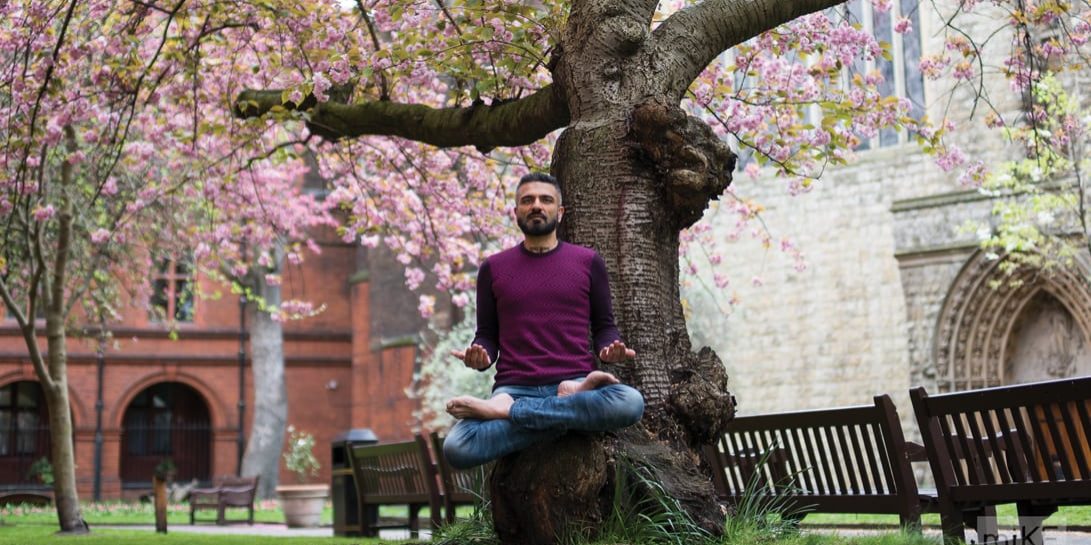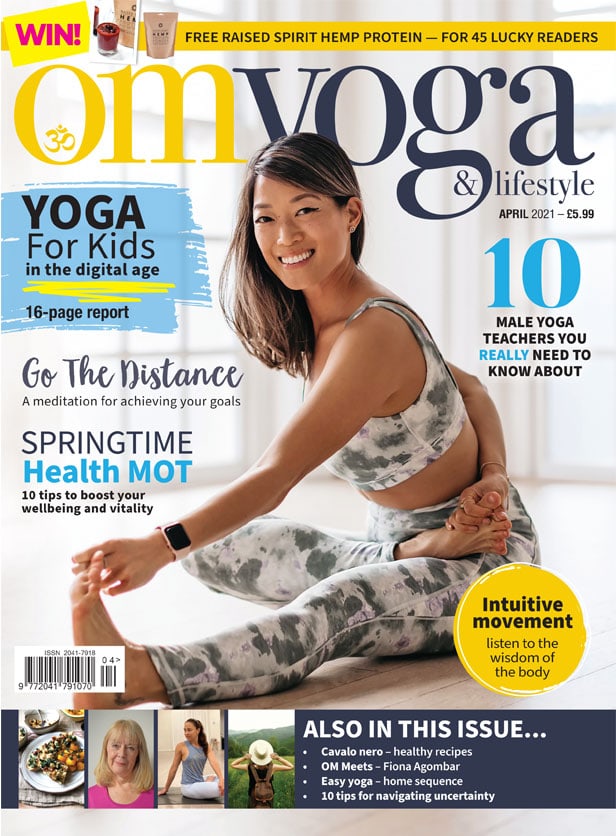
Self-care, post-lockdown
Post-lockdown self-care: nurturing practices for managing anxiety and adjusting back to our old lives. By Nik Parmar
For some, the end of lockdown might feel like a huge relief; going out again, seeing your friends and doing all the things that we have been missing out on so much over the past year. But this isn’t the way everyone feels and for many of us the idea of going ‘back to normal’ is overwhelming.
For almost a year now, we have learnt to respect and appreciate our homes as a safe space sanctuary, making it our comfort zone, protecting us and our loved ones from the pandemic danger outside.
Even as the world moves forward with re-opening, the psychological consequences of coronavirus will be long-lasting, disrupting our lives, invading our privacy and comfort, changing our perception of ourselves on an unconscious level yet again.
Anxiety & uncertainty
Uncertainty can be very challenging, especially when things are out of our control, and this can lead to anxiety and fear which are natural responses to big changes.
People who have never experienced mental health difficulties before may also hit a wave of anxiety for the first time. For others, these circumstances may exacerbate individuals’ pre-existing anxiety.
If you feel this way there’s nothing wrong with you and there’s no need to feel embarrassed.
Remember how it felt to adapt to the lockdown way of living?
Adapting once again will take some time: self-love, compassion and patience are very important.
If you are feeling a little unsure during this time, here are some practical self-compassion tips for coping with any post-lockdown anxiety:
Make small changes
Time is the best healer. Taking one step at a time will provide some comfort when easing into a new routine. Try not to raise the bar of social temptations and people pleasing, as this rush could make you exhausted and thoroughly burnt out.
Journaling
Note down how you feel in every new situation even if it is going for a socially distanced walk with friends. This will help identify any pattern of fears or concerns, providing an opportunity to work on the next steps to feel comfortable again.
Mindfulness & meditation
Despite knowing the benefits, on a practical level it can sometimes feel overwhelming to get started (or re-started) with mindfulness or meditation. But this practice can improve body awareness, physical sensations and emotions, giving a warmth of grounding, self-love and compassion. It’s important to understand and appreciate what works for you and not to be externally influenced by comparison.
Meditations that focus on the breath or body are helpful and safe for awareness in the present moment. Set an intention to practice regularly making it into a habit. Maybe just start with a daily 5-10 minutes’ practice of guided meditation and see how it goes.
Here are some other ideas that might help:
- Try eating a meal without any distractions and focus on the smell and flavours of the food. If your mind wanders to other thoughts or your phone, notice that with acceptance, and bring yourself back to the present moment.
- Take a walk at lunchtime and turn your thoughts to the sensation of walking. Notice the details of the sensation, as a foot lifts, the weight shifts onto the ball of the foot and the heel lands. How do your feet feel? How does the rest of your body feel? Bring acceptance to whatever you are feeling. Take a slow, cleansing breath. Hold it for a moment. And release it.
- Continue to connect with nature; the trees, grass, water, birds and natural sounds will always provide a grounding experience with compassionate security.
- Explore mantras, kirtans and create an affirmation which can be used as an anchor tool should you feel a panic attack coming up. That busy London commute may now become a mental challenge!
- Choose a gemstone that will be beneficial to you and wear it around your neck or wrist, letting the natural therapeutic energy nourish all aspects of your being and initiate enduring changes.
- Keep the creativity flowing and try not to stop any of your passionate hobbies (singing, dancing, playing music, painting etc.). These creative tools are the key to express how you’re truly feeling.
Media scare
Some of our anxiety may be caused by the media coverage of the pandemic, which has stoked fear and panic as it has shaped our reaction to ongoing events. What we hear and see on the media may be beyond our control…but we can take control of this by limiting the time and content of our media intake.
Seek support
You are not the only one who is scared of these challenges of adapting to the old ‘new life’. Remember that this is an experience that no one has faced before, so talking about how we’re feeling is a great way to remind each other that we’re all in this together, no matter how isolated our emotions might make us feel. Talk to supportive friends and family about how you’re feeling. It is likely that someone you know will be having similar experiences and sharing your thoughts and emotions can help relieve your stress.
And finally…
Try not to expect too much of yourself to start with and always remember:
Look: Take time to check-in with yourself.
Listen: Give yourself space to be open and honest about how you feel.
Feel: Take the time to acknowledge how you are truly feeling.
Respond: Pause and give yourself compassion. Let go of expectations: the goal is to quiet the mind.
Nik Parmar is the founder of Spiritual Gypsy (kleem.co.uk)


